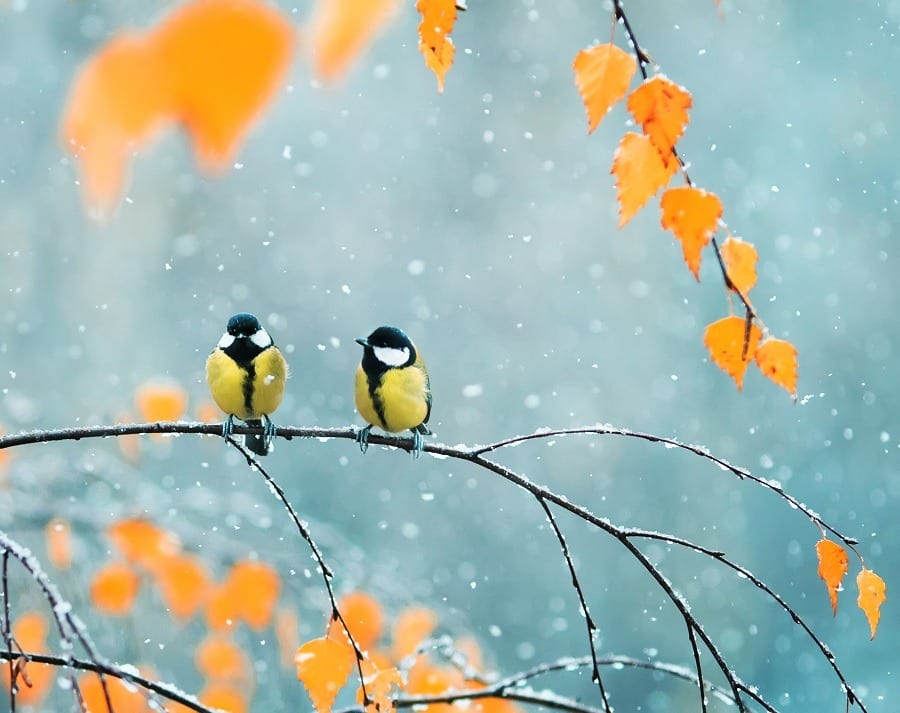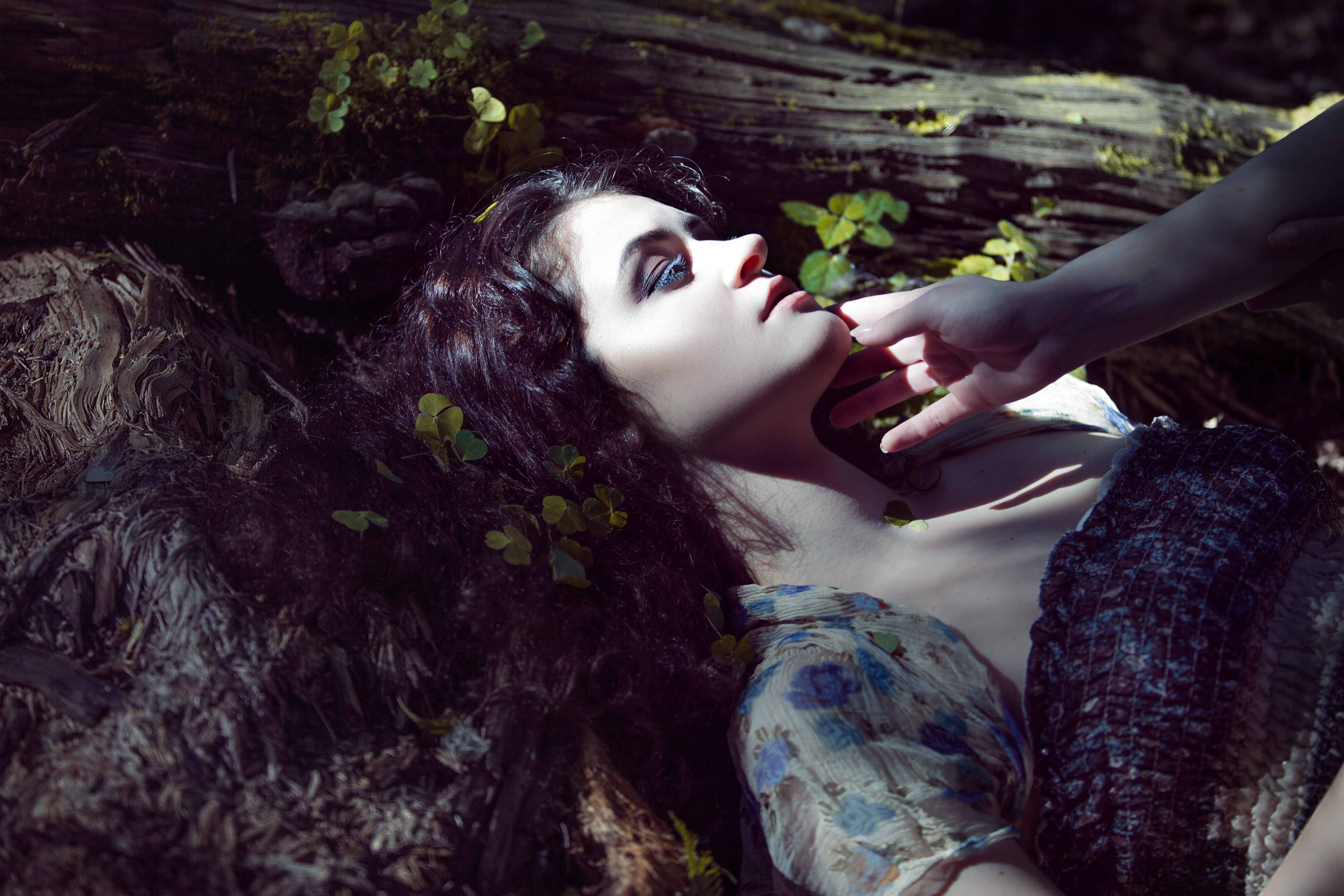Here are my favorite love poems by Shakespeare categorized:
- Famous love sonnets by Shakespeare
- Forbidden love poems by Shakespeare
- Selected love poems by Shakespeare
So if you want the best love poems by Shakespeare, then you’re in the right place.
Keep reading!
- 53 Best Poems by John Keats
- 55 Best Poems by William Shakespeare
- 27 Best Poems by Arthur Rimbaud
- 47 Best Poems by Edgar Allan Poe
- 43 Best Poems by Rumi
- 35 Bewitching Love Poems by Rumi
- 47 Admirable Love Poems by William Butler Yeats
- 21 Sensuous Love Poems by John Keats
- 21 Absorbing Love Poems by Pablo Neruda

Consuming Love Poems by Shakespeare

Indulge in the exquisite beauty of William Shakespeare’s love poetry with our collection of the best works.
From his renowned sonnets to lesser-known but equally poignant pieces, these love poems capture the essence of romance with lyrical eloquence.
Discover Shakespeare’s heartwarming and heartbreaking works on love all in one place here, and experience the power of his poetic legacy.
Let’s get started!
My #1 Favorite Love Poem by Shakespeare
“My Love Is As a Fever, Longing Still (Sonnet 147)” by William Shakespeare
My love is as a fever, longing still
For that which longer nurseth the disease;
Feeding on that which doth preserve the sill,
The uncertain sickly appetite to please.
My reason, the physician to my love,
Angry that his prescriptions are not kept,
Hath left me, and I desperate now approve
Desire is death, which physic did except.
Past cure I am, now reason is past care,
And frantic-mad with evermore unrest;
My thoughts and my discourse as madmen’s are,
At random from the truth vainly express’d;
For I have sworn thee fair and thought thee bright,
Who art as black as hell, as dark as night.
Famous Love Sonnets by Shakespeare

“Sonnet 116” by William Shakespeare
Let me not to the marriage of true minds
Admit impediments. Love is not love
Which alters when it alteration finds,
Or bends with the remover to remove:
O, no! it is an ever-fixed mark,
That looks on tempests and is never shaken;
It is the star to every wandering bark,
Whose worth’s unknown, although his height be taken.
Love’s not time’s fool, though rosy lips and cheeks
Within his bending sickle’s compass come;
Love alters not with his brief hours and weeks,
But bears it out even to the edge of doom.
If this be error and upon me proved,
I never writ, nor no man ever loved.
“Sonnet 18” by William Shakespeare
Shall I compare thee to a summer’s day?
Thou art more lovely and more temperate.
Rough winds do shake the darling buds of May,
And summer’s lease hath all too short a date.
Sometime too hot the eye of heaven shines,
And often is his gold complexion dimmed;
And every fair from fair sometime declines,
By chance, or nature’s changing course, untrimmed;
But thy eternal summer shall not fade,
Nor lose possession of that fair thou ow’st,
Nor shall death brag thou wand’rest in his shade,
When in eternal lines to Time thou grow’st.
So long as men can breathe, or eyes can see,
So long lives this, and this gives life to thee.
“Sonnet 102” by William Shakespeare
My love is strengthened, though more weak in seeming;
I love not less, though less the show appear;
That love is merchandized, whose rich esteeming,
The owner’s tongue doth publish every where.
Our love was new, and then but in the spring,
When I was wont to greet it with my lays;
As Philomel in summer’s front doth sing,
And stops his pipe in growth of riper days:
Not that the summer is less pleasant now
Than when her mournful hymns did hush the night,
But that wild music burthens every bough,
And sweets grown common lose their dear delight.
Therefore like her, I sometime hold my tongue:
Because I would not dull you with my song.

“Sonnet 145” by William Shakespeare
Those lips that Love’s own hand did make
Breathed forth the sound that said ‘I hate’
To me that languish’d for her sake;
But when she saw my woeful state,
Straight in her heart did mercy come,
Chiding that tongue that ever sweet
Was used in giving gentle doom,
And taught it thus anew to greet;
‘I hate’ she alter’d with an end,
That follow’d it as gentle day
Doth follow night, who like a fiend
From heaven to hell is flown away;
‘I hate’ from hate away she threw,
And saved my life, saying ‘not you.’
“Sonnet 112” by William Shakespeare
Your love and pity doth the impression fill
Which vulgar scandal stamp’d upon my brow;
For what care I who calls me well or ill,
So you o’er-green my bad, my good allow?
You are my all the world, and I must strive
To know my shames and praises from your tongue;
None else to me, nor I to none alive,
That my steel’d sense or changes right or wrong.
In so profound abysm I throw all care
Of others’ voices, that my adder’s sense
To critic and to flatterer stopped are.
Mark how with my neglect I do dispense:
You are so strongly in my purpose bred
That all the world besides methinks are dead.
“Sonnet 105” by William Shakespeare
Let not my love be call’d idolatry,
Nor my beloved as an idol show,
Since all alike my songs and praises be
To one, of one, still such, and ever so.
Kind is my love to-day, to-morrow kind,
Still constant in a wondrous excellence;
Therefore my verse to constancy confined,
One thing expressing, leaves out difference.
‘Fair, kind, and true; is all my argument,
‘Fair, kind, and true’ varying to other words;
And in this change is my invention spent,
Three themes in one, which wondrous scope affords.
‘Fair, kind, and true,’ have often lived alone,
Which three till now never kept seat in one.

“Sonnet 75” by William Shakespeare
So are you to my thoughts as food to life,
Or as sweet-seasoned showers are to the ground;
And for the peace of you I hold such strife
As ’twixt a miser and his wealth is found;
Now proud as an enjoyer and anon
Doubting the filching age will steal his treasure,
Now counting best to be with you alone,
Then better’d that the world may see my pleasure;
Sometime all full with feasting on your sight
And by and by clean starved for a look;
Possessing or pursuing no delight,
Save what is had or must from you be took.
Thus do I pine and surfeit day by day,
Or gluttoning on all, or all away.
“Sonnet 132” by William Shakespeare
Thine eyes I love, and they, as pitying me,
Knowing thy heart torments me with disdain,
Have put on black and loving mourners be,
Looking with pretty ruth upon my pain.
And truly not the morning sun of heaven
Better becomes the grey cheeks of the east,
Nor that full star that ushers in the even
Doth half that glory to the sober west,
As those two mourning eyes become thy face:
O, let it then as well beseem thy heart
To mourn for me, since mourning doth thee grace,
And suit thy pity like in every part.
Then will I swear beauty herself is black
And all they foul that thy complexion lack.
“Sonnet 29” by William Shakespeare
When in disgrace with fortune and men’s eyes,
I all alone beweep my outcast state,
And trouble deaf heaven with my bootless cries,
And look upon myself and curse my fate,
wishing me like to one more rich in hope,
Featured like him, like him with friends possessed,
Desiring this man’s art, and that man’s scope,
With what I most enjoy contented least;
Yet in these thoughts myself almost despising,
Haply I think on thee—and then my state,
Like to the lark at break of day arising
From sullen earth sings hymns at heaven’s gate;
For thy sweet love remembered such wealth brings,
That then I scorn to change my state with kings.

“Sonnet 1” by William Shakespeare
From fairest creatures we desire increase,
That thereby beauty’s rose might never die,
But as the riper should by time decease,
His tender heir might bear his memory;
But thou, contracted to thine own bright eyes,
Feed’st thy light’s flame with self-substantial fuel,
Making a famine where abundance lies,
Thyself thy foe, to thy sweet self too cruel.
Thou that art now the world’s fresh ornament
And only herald to the gaudy spring,
Within thine own bud buriest thy content,
And, tender churl, mak’st waste in niggarding.
Pity the world, or else this glutton be,
To eat the world’s due, by the grave and thee.
“Sonnet 118” by William Shakespeare
Like as, to make our appetite more keen,
With eager compounds we our palate urge;
As, to prevent our maladies unseen,
We sicken to shun sickness when we purge;
Even so, being full of your ne’er-cloying sweetness,
To bitter sauces did I frame my feeding;
And, sick of welfare, found a kind of meetness
To be diseas’d, ere that there was true needing.
Thus policy in love, to anticipate
The ills that were not, grew to faults assur’d,
And brought to medicine a healthful state
Which, rank of goodness, would by ill be cur’d;
But thence I learn and find the lesson true,
Drugs poison him that so fell sick of you.
“Sonnet 73” by William Shakespeare
That time of year thou mayst in me behold
When yellow leaves, or none, or few, do hang
Upon those boughs which shake against the cold,
Bare ruin’d choirs, where late the sweet birds sang.
In me thou see’st the twilight of such day
As after sunset fadeth in the west,
Which by and by black night doth take away,
Death’s second self, that seals up all in rest.
In me thou see’st the glowing of such fire
That on the ashes of his youth doth lie,
As the death-bed whereon it must expire,
Consum’d with that which it was nourish’d by.
This thou perceiv’st, which makes thy love more strong,
To love that well which thou must leave ere long.

“Sonnet 13” by William Shakespeare
O, that you were yourself! But, love, you are
No longer yours than you yourself here live:
Against this coming end you should prepare,
And your sweet semblance to some other give.
So should that beauty which you hold in lease
Find no determination; then you were
Yourself again after yourself’s decrease,
When your sweet issue your sweet form should bear.
Who lets so fair a house fall to decay,
Which husbandry in honour might uphold
Against the stormy gusts of winter’s day
And barren rage of death’s eternal cold?
O, none but unthrifts! Dear m love, you know
You had a father: let your son say so.
“Sonnet 23” by William Shakespeare
As an unperfect actor on the stage,
Who with his fear is put besides his part,
Or some fierce thing replete with too much rage,
Whose strength’s abundance weakens his own heart;
So I, for fear of trust, forget to say
The perfect ceremony of love’s rite,
And in mine own love’s strength seem to decay,
O’ercharg’d with burden of mine own love’s might.
O, let my books be then the eloquence
And dumb presagers of my speaking breast;
Who plead for love, and look for recompense,
More than that tongue that more hath more express’d.
O, learn to read what silent love hath writ:
To hear with eyes belongs to love’s fine wit.
“Sonnet 49” by William Shakespeare
Against that time, if ever that time come,
When I shall see thee frown on my defects,
When as thy love hath cast his utmost sum,
Call’d to that audit by advised respects;
Against that time when thou shalt strangely pass
And scarcely greet me with that sun, thine eye,
When love, converted from the thing it was,
Shall reasons find of settled gravity,—
Against that time do I ensconce me here
Within the knowledge of mine own desert,
And this my hand against myself uprear,
To guard the lawful reasons on thy part:
To leave poor me thou hast the strength of laws,
Since why to love I can allege no cause.

“Sonnet 63” by William Shakespeare
Against my love shall be as I am now,
With Time’s injurious hand crush’d and o’erworn;
When hours have drain’d his blood and fill’d his brow
With lines and wrinkles; when his youthful morn
Hath travelled on to age’s steepy night;
And all those beauties whereof now he’s king
Are vanishing, or vanished out of sight,
Stealing away the treasure of his spring;
For such a time do I now fortify
Against confounding age’s cruel knife,
That he shall never cut from memory
My sweet love’s beauty, though my lover’s life:
His beauty shall in these black lines be seen,
And they shall live, and he in them still green.
“Sonnet 37” by William Shakespeare
As a decrepit father takes delight
To see his active child do deeds of youth,
So I, made lame by fortune’s dearest spite,
Take all my comfort of thy worth and truth.
For whether beauty, birth, or wealth, or wit,
Or any of these all, or all, or more,
Entitled in thy parts do crownèd sit,
I make my love engrafted to this store.
So then I am not lame, poor, nor despised,
Whilst that this shadow doth such substance give
That I in thy abundance am sufficed,
And by a part of all thy glory live.
Look what is best, that best I wish in thee.
This wish I have; then ten times happy me.
“Sonnet 104” by William Shakespeare
To me, fair friend, you never can be old,
For as you were when first your eye I ey’d,
Such seems your beauty still. Three winters cold,
Have from the forests shook three summers’ pride,
Three beauteous springs to yellow autumn turn’d,
In process of the seasons have I seen,
Three April perfumes in three hot Junes burn’d,
Since first I saw you fresh, which yet are green.
Ah! yet doth beauty like a dial-hand,
Steal from his figure, and no pace perceiv’d;
So your sweet hue, which methinks still doth stand,
Hath motion, and mine eye may be deceiv’d:
For fear of which, hear this thou age unbred:
Ere you were born was beauty’s summer dead.

“Sonnet 61” by William Shakespeare
Is it thy will thy image should keep open
My heavy eyelids to the weary night?
Dost thou desire my slumbers should be broken,
While shadows like to thee do mock my sight?
Is it thy spirit that thou send’st from thee
So far from home into my deeds to pry,
To find out shames and idle hours in me,
The scope and tenor of thy jealousy?
O no; thy love, though much, is not so great.
It is my love that keeps mine eye awake,
Mine own true love that doth my rest defeat,
To play the watchman ever for thy sake.
For thee watch I whilst thou dost wake elsewhére,
From me far off, with others all too near.
Forbidden Love Poems by Shakespeare

“My Mistress’ Eyes Are Nothing Like the Sun” by William Shakespeare
My mistress’ eyes are nothing like the sun;
Coral is far more red, than her lips red:
If snow be white, why then her breasts are dun;
If hairs be wires, black wires grow on her head.
I have seen roses damasked, red and white,
But no such roses see I in her cheeks;
And in some perfumes is there more delight
Than in the breath that from my mistress reeks.
I love to hear her speak, yet well I know
That music hath a far more pleasing sound:
I grant I never saw a goddess go,
My mistress, when she walks, treads on the ground:
And yet by heaven, I think my love as rare,
As any she belied with false compare.
“Poor Soul, The Centre of My Sinful Earth” by William Shakespeare
Poor soul, the centre of my sinful earth,
Thrall to these rebel powers that thee array,
Why dost thou pine within and suffer dearth,
Painting thy outward walls so costly gay?
Why so large cost, having so short a lease,
Dost thou upon thy fading mansion spend?
Shall worms, inheritors of this excess,
Eat up thy charge? Is this thy body’s end?
Then soul, live thou upon thy servant’s loss,
And let that pine to aggravate thy store;
Buy terms divine in selling hours of dross;
Within be fed, without be rich no more:
So shall thou feed on Death, that feeds on men,
And Death once dead, there’s no more dying then
“In the Old Age Black Was Not Counted Fair” by William Shakespeare
In the old age black was not counted fair,
Or if it were, it bore not beauty’s name;
But now is black beauty’s successive heir,
And beauty slandered with a bastard shame:
For since each hand hath put on Nature’s power,
Fairing the foul with Art’s false borrowed face,
Sweet beauty hath no name, no holy bower,
But is profaned, if not lives in disgrace.
Therefore my mistress’ eyes are raven black,
Her eyes so suited, and they mourners seem
At such who, not born fair, no beauty lack,
Sland’ring creation with a false esteem:
Yet so they mourn becoming of their woe,
That every tongue says beauty should look so.

“Betwixt Mine Eye and Heart a League Is Took” by William Shakespeare
Betwixt mine eye and heart a league is took,
And each doth good turns now unto the other.
When that mine eye is famished for a look,
Or heart in love with sighs himself doth smother,
With my love’s picture then my eye doth feast
And to the painted banquet bids my heart.
Another time mine eye is my heart’s guest,
And in his thoughts of love doth share a part.
So either by thy picture or my love,
Thyself away are present still with me;
For thou no farther than my thoughts canst move,
And I am still with them, and they with thee;
Or if they sleep, thy picture in my sight
Awakes my heart to heart’s and eye’s delight.
“Since I Left You, Mine Eye Is in My Mind” by William Shakespeare
Since I left you, mine eye is in my mind;
And that which governs me to go about
Doth part his function and is partly blind,
Seems seeing, but effectually is out;
For it no form delivers to the heart
Of bird, of flower, or shape, which it doth latch:
Of his quick objects hath the mind no part,
Nor his own vision holds what it doth catch;
For if it see the rudest or gentlest sight,
The most sweet favour or deformed’st creature,
The mountain or the sea, the day or night,
The crow or dove, it shapes them to your feature:
Incapable of more, replete with you,
My most true mind thus makes mine eye untrue.
“In Loving Thee Thou Know’St I Am Forsworn” by William Shakespeare
In loving thee thou know’st I am forsworn,
But thou art twice forsworn, to me love swearing,
In act thy bed-vow broke and new faith torn,
In vowing new hate after new love bearing.
But why of two oaths’ breach do I accuse thee,
When I break twenty? I am perjured most;
For all my vows are oaths but to misuse thee
And all my honest faith in thee is lost,
For I have sworn deep oaths of thy deep kindness,
Oaths of thy love, thy truth, thy constancy,
And, to enlighten thee, gave eyes to blindness,
Or made them swear against the thing they see;
For I have sworn thee fair; more perjured I,
To swear against the truth so foul a lie!

“Love Is Too Young to Know What Conscience Is” by William Shakespeare
Love is too young to know what conscience is;
Yet who knows not conscience is born of love?
Then, gentle cheater, urge not my amiss,
Lest guilty of my faults thy sweet self prove:
For, thou betraying me, I do betray
My nobler part to my gross body’s treason;
My soul doth tell my body that he may
Triumph in love; flesh stays no farther reason;
But, rising at thy name, doth point out thee
As his triumphant prize. Proud of this pride,
He is contented thy poor drudge to be,
To stand in thy affairs, fall by thy side.
No want of conscience hold it that I call
Her ‘love’ for whose dear love I rise and fall.
“The Little Love-God Lying Once Asleep” by William Shakespeare
The little love-god lying once asleep
Laid by his side his heart-inflaming brand,
Whilst many nymphs that vow’d chaste life to keep
Came tripping by; but in her maiden hand
The fairest votary took up that fire
Which many legions of true hearts had warm’d;
And so the general of hot desire
What sleeping by a virgin hand disarm’d.
This brand she quenched in a cool well by,
Which from Love’s fire took heat perpetual,
Growing a bath and healthful remedy
For men diseased; but I, my mistress’ thrall,
Came there for cure, and this by that I prove,
Love’s fire heats water, water cools not love.
“How Oft When Thou, My Music, Music Play’St” by William Shakespeare
How oft when thou, my music, music play’st,
Upon that blessed wood whose motion sounds
With thy sweet fingers when thou gently sway’st
The wiry concord that mine ear confounds,
Do I envy those jacks that nimble leap,
To kiss the tender inward of thy hand,
Whilst my poor lips which should that harvest reap,
At the wood’s boldness by thee blushing stand!
To be so tickled, they would change their state
And situation with those dancing chips,
O’er whom thy fingers walk with gentle gait,
Making dead wood more bless’d than living lips.
Since saucy jacks so happy are in this,
Give them thy fingers, me thy lips to kiss.

“If Thy Soul Check Thee That I Come So Near” by William Shakespeare
If thy soul check thee that I come so near,
Swear to thy blind soul that I was thy ‘Will,’
And will, thy soul knows, is admitted there;
Thus far for love my love-suit, sweet, fulfil.
‘Will’ will fulfil the treasure of thy love,
Ay, fill it full with wills, and my will one.
In things of a great receipt with ease we prove
Among a number let me pass untold,
Though in thy stores’ account I one must be;
For nothing hold me, so it please thee hold
That nothing me, a something sweet to thee:
Make but my name thy love, and love that still,
And then thou lovest me, for my name is ‘Will.
“So, Now I Have Confess’d That He Is Thine” by William Shakespeare
So, now I have confess’d that he is thine,
And I myself am mortgaged to thy will,
Myself I’ll forfeit, so that other mine
Thou wilt restore, to be my comfort still:
But thou wilt not, nor he will not be free,
For thou art covetous and he is kind;
He learn’d but surety-like to write for me
Under that bond that him as fast doth bind,
The statute of thy beauty thou wilt take,
Thou usurer, that put’st forth all to use
And sue a friend came debtor for my sake;
So him I lost through my unkind abuse.
Him have I lost; thou hast both him and me:
He pays the whole, and yet am I not free.
“Two Loves I Have of Comfort and Despair” by William Shakespeare
Two loves I have of comfort and despair,
Which like two spirits do suggest me still:
The better angel is a man right fair,
The worser spirit a woman colour’d ill.
To win me soon to hell, my female evil
Tempteth my better angel from my side,
And would corrupt my saint to bea devil,
Wooing his purity with her foul pride.
And whether that my angel be turn’d fiend
Suspect I may, yet not directly tell;
But being both from me, both to each friend,
I guess one angel in another’s hell:
Yet this shall I ne’er know, but live in doubt,
Till my bad angel fire my good one out.

“O, From What Power Hast Thou This Powerful Might” by William Shakespeare
O, from what power hast thou this powerful might
With insufficiency my heart to sway?
To make me give the lie to my true sight?
And swear that brightness doth not grace the day?
Whence hast thou this becoming of things ill,
That in the very refuse of thy deeds
There is such strength and warranties of skill
That, in my mind, thy worst all best exceeds?
Who taught thee how to make me love thee more
The more I hear and see just cause of hate?
O, though I love what others do abhor,
With others thou shouldst not abhor my state:
If thy unworthiness raised love in me,
More worthy I to be beloved of thee.
“Thou Blind Fool, Love, What Dost Thou to Mine Eyes” by William Shakespeare
Thou blind fool, Love, what dost thou to mine eyes,
That they behold, and see not what they see?
They know what beauty is, see where it lies,
Yet what the best is take the worst to be.
If eyes corrupt by over-partial looks
Be anchor’d in the bay where all men ride,
Why of eyes’ falsehood hast thou forged hooks,
Whereto the judgement of my heart is tied?
Why should my heart think that a several plot
Which my heart knows the wide world’s common place?
Or mine eyes seeing this, say this is not,
To put fair truth upon so foul a face?
In things right true my heart and eyes have err’d,
And to this false plague are they now transferr’d.
“Let Me Confess That We Two Must Be Twain” by William Shakespeare
Let me confess that we two must be twain.
Although our undivided loves are one:
So shall those blots that do with me remain
Without thy help by me be borne alone.
In our two loves there is but one respect,
Though in our lives a separable spite,
Which though it alter not love’s sole effect,
Yet doth it steal sweet hours from love’s delight.
I may not evermore acknowledge thee,
Lest my bewailed guilt should do thee shame,
Not thou with public kindness honour me,
Unless thou take that honour from thy name:
But do not so; I love thee in such sort
As, thou being mine, mine is thy good report.
Selected Love Poems by Shakespeare

“Sweet Love, Renew Thy Force” by William Shakespeare
Sweet love, renew thy force; be it not said
Thy edge should blunter be than appetite,
Which but to-day by feeding is allay’d,
To-morrow sharpen’d in his former might:
So, love, be thou; although to-day thou fill
Thy hungry eyes even till they wink with fullness,
To-morrow see again, and do not kill
The spirit of love with a perpetual dullness.
Let this sad interim like the ocean be
Which parts the shore, where two contracted new
Come daily to the banks, that, when they see
Return of love, more blest may be the view;
Else call it winter, which being full of care
Makes summer’s welcome thrice more wish’d, more rare.
“Aubade” by William Shakespeare
Hark! hark! the lark at heaven’s gate sings,
And Phoebus ‘gins arise,
His steeds to water at those springs
On chaliced flowers that lies;
And winking Mary-buds begin
To ope their golden eyes:
With everything that pretty bin,
My lady sweet, arise!
Arise, arise!
“O, How Thy Worth With Manners May I Sing” by William Shakespeare
O, how thy worth with manners may I sing,
When thou art all the better part of me?
What can mine own praise to mine own self bring?
And what is ’t but mine own when I praise thee?
Even for this let us divided live,
And our dear love lose name of single one,
That by this separation I may give
That due to thee which thou deserves alone.
O absence, what a torment wouldst thou prove,
To entertain the time with thoughts of love,
Which time and thoughts so sweetly doth deceive,
And that thou teachest how to make one twain,
By praising him here who doth hence remain!

“Being Your Slave, What Should I Do but Tend” by William Shakespeare
Being your slave, what should I do but tend
Upon the hours and times of your desire?
I have no precious time at all to spend,
Nor services to do, till you require.
Nor dare I chide the world-without-end hour
Whilsts I, my sovereign, watch the clock for you,
Not think the bitterness of absence sour
When you have bid your servant once adieu;
Not dare I question with my jealous thought
Where you may be, or your affairs suppose,
But, like a sad slave, stay and think of nought
Save, where you are how happy you make those.
So true a fool is love that in your will,
Though you do any thing, he thinks no ill.
“Carpe Diem” by William Shakespeare
O mistress mine, where are you roaming?
O stay and hear! your true-love’s coming
That can sing both high and low;
Trip no further, pretty sweeting,
Journey’s end in lovers’ meeting—
Every wise man’s son doth know.
What is love? ’tis not hereafter;
Present mirth hath present laughter;
What’s to come is still unsure:
In delay there lies no plenty,—
Then come kiss me, sweet and twenty,
Youth’s a stuff will not endure.
“So Oft I Invoke Thee for My Muse” by William Shakespeare
So oft I invoke thee for my Muse
And found such fair assistance in my verse
As every alien pen hath got my use
And under thee their posey disperse.
Thine eyes that taught the dumb on high to sing
And heavy ignorance aloft to fly
Have added feathers to the learned’s wing
And given grace a double majesty.
Yet be most proud of that which I compile,
Whose influence is thine and born of thee:
In others’ works thou dost but mend the style,
And arts with thy sweet graces graced be;
But thou art all my art and dost advance
As high as learning my rude ignorance.

“No Longer Mourn For Me When I Am Dead” by William Shakespeare
No longer mourn for me when I am dead
Than you shall hear the surly sullen bell
Given warning to the world that I am fled
From this vile world, with vilest worms to dwell:
Nay, if you read this line, remember not
The hand that writ it; for I love you so
That I in you sweetest thoughts would be forgot
If thinking on me then should make you woe.
O, if I say, you look upon this verse
When I perhaps compounded am with clay,
Do not so much as my poor name rehearse,
But let your love even with my life decay,
Lest the wise world should look into your moan
And mock you with me after I am gone.
“Where Art Thou, Muse, That Thou Forget’St So Long” by William Shakespeare
Where art thou, Muse, that thou forget’st so long
To speak of that which gives thee all thy might?
Spend’st thou thy fury on some worthless song,
Darkening thy power to lend base subjects light?
Return, forgetful Muse, and straight redeem
In gentle numbers time so idly spent;
Sing to the ear that doth thy lays esteem
And gives thy pen both skill and argument.
Rise, resty Muse, my love’s sweet face survey,
If time have any wrinkle graven there;
If any, be a satire to decay,
And make time’s spoils despised every where.
Give my love fame faster than Time wastes life;
So thou prevent’st his scythe and crooked knife.
“Let Those Who Are In Favour With Their Stars” by William Shakespeare
Let those who are in favour with their stars
Of public honour and proud titles boast
Whilst I, whom fortune of such triumph bars,
Unlook’d for joy in that I honour most.
Great princes’ favourites their fair leaves spread
But as the marigold at the sun’s eye,
And in themselves their pride lies buried,
For at a frown they in their glory die.
The painful warrior famoused for fight,
After a thousand victories once foil’d,
Is from the book of honour razed quite,
And all therest forgot for which he toil’d;
Then happy I, that love and am beloved
Where I may not remove nor be removed.

“Not Mine Own Fears, nor the Prophetic Soul” by William Shakespeare
Not mine own fears, nor the prophetic soul
Of the wide world dreaming on things to come,
Can yet the lease of my true love control,
Supposed as forfeit to a confined doom.
The mortal moon hath her eclipse endured
And the sad augurs mock their own presage;
Uncertainties now crown themselves assured
And peace proclaims olives of endless age.
Now with the drops of this most balmy time
My love looks fresh, and Death to me subscribes,
Since, spite of him, I’ll live in this poor rhyme,
While he insults o’er dull and speechless tribes:
And thou in this shalt find thy monument,
When tyrants’ crests and tombs of brass are spent.
“When Thou Shalt Be Disposed to Set Me Light” by William Shakespeare
When thou shalt be disposed to set me light
And place my merit in they of scorn,
Upon thy side against myself I’ll fight
And prove thee virtuous, though thou art forsworn.
With mine own weakness being best acquainted,
Upon thy part I can set down a story
Of faults conceal’d, wherein I am attainted,
That thou in losing me shalt win much glory:
And I by this will be a gainer too;
For bending all my loving thoughts on thee,
The injuries that to myself I do,
Doing thee vantage, double-vantage me.
Such is my love, to thee I so belong,
That for thy right myself will bear all wrong.
“O, Never Say That I Was False of Heart” by William Shakespeare
O, never say that I was false of heart,
Though absence seem’d my flame to qualify,
As easy might I from myself depart
As from my soul, which in thy breast doth lie:
That is my home of love: if I have ranged,
Like him that ravels I return again,
Just to the time, not with the time exchanged,
So that myself bring water for my stain.
Never believe, though in my nature reign’d
All frailties that besiege all kinds of blood,
That it could so preposterously be stain’d,
To leave for nothing all thy sum of good;
For nothing this wide universe I call,
Save thou, my rose; in it thou art my all.

“Song: Silvia” by William Shakespeare
Who is Silvia? What is she?
That all our swains commend her?
Holy, fair, and wise is she:
The heaven such grace did lend her,
That she might admirèd be.
Is she kind as she is fair?
For beauty lives with kindness:
Love doth to her eyes repair,
To help him of his blindness;
And, being help’d, inhabits there.
Then to Silvia let us sing,
That Silvia is excelling;
She excels each mortal thing
Upon the dull earth dwelling:
To her let us garlands bring.
“A Fairy Song” by Shakespeare
COME, follow, follow me,
Ye fairy elves that be,
Light tripping o’er the green,
Come follow Mab your queen ;
Hand in hand we’ll dance around,
For this place is fairy ground.
When mortals are at rest,
And snoring in their nest,
Unheard and unespied,
Through the key-holes we do glide ;
Over tables, stools and shelves,
We trip it with our fairy elves.
And if the house is swept,
And from uncleanness kept,
We praise the household maid,
And surely she is paid ;
For every night, before we go,
We drop a sixpence in her shoe.
Then o’er a mushroom’s head
Our table-cloth we spread ;
A grain of rye or wheat
The diet that we eat:
Pearly drops of dew we drink,
In acorn-cups filled to the brink.
The grasshopper, gnat and fly,
Serve for our minstrelsy ;
Grace said, we dance awhile, ‘
And so the time beguile ;
And if the moon doth hide her head,
The glow-worm lights us home to bed.
O’er tops of dewy grass
So nimbly do we pass,
The young and tender stalk
Ne’er bends where we do walk’;
Yet in the morning may be seen
Where we the night before have been.
- 53 Best Poems by John Keats
- 55 Best Poems by William Shakespeare
- 27 Best Poems by Arthur Rimbaud
- 47 Best Poems by Edgar Allan Poe
- 43 Best Poems by Rumi
- 35 Bewitching Love Poems by Rumi
- 47 Admirable Love Poems by William Butler Yeats
- 21 Sensuous Love Poems by John Keats
- 21 Absorbing Love Poems by Pablo Neruda
